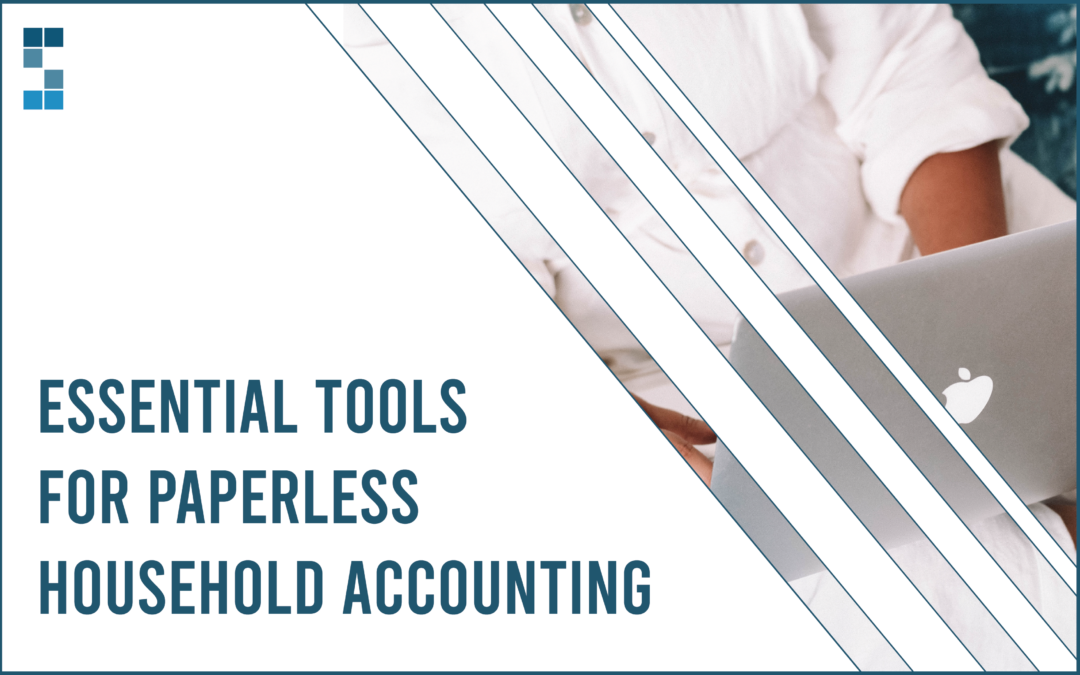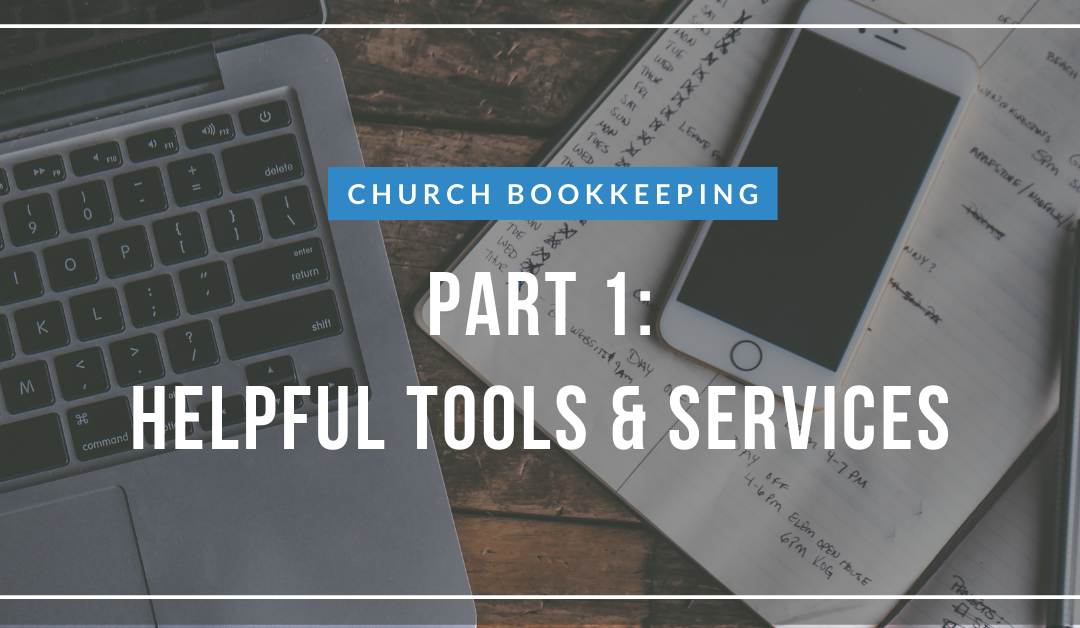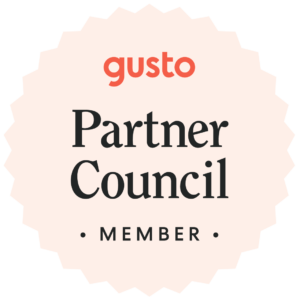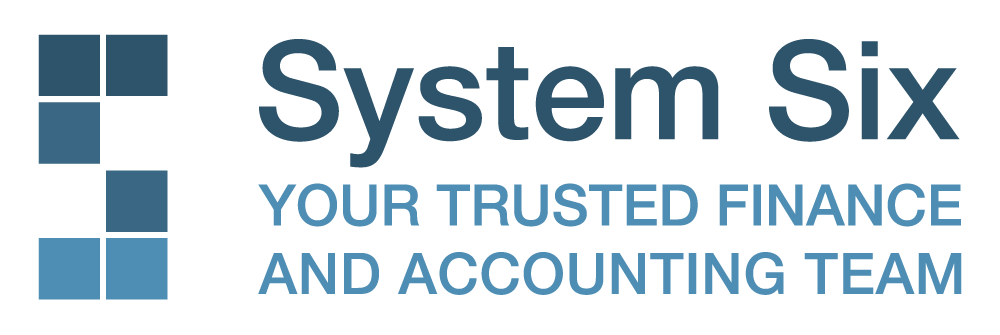
by Dev | Jul 28, 2021 | Blog, Bookkeeping Best Practices, Bookkeeping Tech
At Systems Six, we recognize that feelings of stress and being overwhelmed are commonplace for many small business owners during tax season, which is why we want to equip you with principles to simplify your tax prep. On a micro level, your taxes are impacted by daily transactions: running payroll, writing invoices, paying vendors — each of which look back upon actions previously done. Zooming out to a macro level, the same data needed to execute your taxes will also be needed in the future if your business gets audited, you need financing, or are looking to sell. When new seasons of business or big decisions come knocking, we want you to be prepared. Here are three tips our expert bookkeepers recommend to simplify your tax prep and serve your goals on micro and macro levels:
1. Use proper digital record keeping systems
The foundation of your tax prep is the same systems you use to accomplish tasks like payroll and paying bills; they must be organized and accessible. We recommend using online, cloud-based tools. Our team advocates for Quickbooks to be your central online hub through which all other platforms connect. Using other platforms like Bill.com for bills, Ally for receipts, and Sharefile for shared documents will complement Quickbooks and assist in managing an efficient and accurate paperless accounting system. Finally, Gusto, a time-tracking and payroll system, is recommended by our team. At the end of the year, Gusto will send W-2’s to each of your employees digitally. By using these systems, your books will be ready for a tax preparing CPA to effortlessly step in and carry out your taxes without needing to spend hours digging for correct information.
2. Maintain bookkeeping hygiene
Using a simplified, cloud-based system for the foundation of your tax prep is essential; however, it can be easy for your books to become messy without upkeeping these systems. We recommend performing weekly and monthly upkeep tasks to ensure that your files stay organized, your receipts are all accounted for, and your books remain clean. Staying on top of these day-to-day tasks will aid in preparing your business for tax season. Ignoring the stack of receipts throughout the year will only lead to panic when your CPA comes knocking.
3. Reconcile your Quickbooks account
Reconciling your books is an easy task, yet it makes a profound impact when it comes to having truthful and accurate books. Comparing your books with your bank statement brings accountability to your work. Quickbooks is a phenomenal online tool, but the IRS begins with your source documents and builds from the ground up to validate your books. Therefore, reconciliation is essential to the promotion of transparency and accuracy with your bookkeeping.
Tax prep doesn’t have to be overwhelming, but it requires organized, daily bookkeeping practices to ensure accurate data. By using digital platforms, maintaining the hygiene of those platforms, and reconciling those platforms with source documents, your company will have significantly simplified the preparation process.

by Dev | Jul 6, 2021 | Blog, Bookkeeping Best Practices, Bookkeeping Tech
At System Six, we believe in the power of trustworthy, high-tech tools to build financial security, transparency, and control. We have been in the cloud since the beginning. Over the years, we have transitioned hundreds of businesses, families, non-profits, and firms to cloud-based tools and seen the impact of reliability and simplicity. Paper and pen systems are notoriously clunky, unreliable, and insecure.
We understand it can be overwhelming to sift through the myriad of available software and applications to help streamline your processes – even more so if you’re doing it for your personal finances. Accounts payable at your company probably do not pay the internet bill at your rental property or handle the landscaping company’s monthly fee. As your personal wealth, properties, and real estate grows, how do you handle the influx of papers and filing?
Our advice? Set yourself up with reliable, trustworthy cloud-based tools. Our team has helped countless families transition away from paper tools. If you’re looking to make the jump, here are four tools we recommend adding to your personal toolbox:
1. An accurate time tracker
If you have employees who work on behalf of your family or are working in your home, they must have the ability to track their time accurately. It’s easy for timecards to be lost or misreported when using paper and pencil. To increase accuracy, we recommend using online software to track your employees’ time. Companies like Gusto, Quickbooks Time, and Toggl have created systems that benefit households by eliminating errors with timecards. In addition, these systems will save you time by syncing to your household’s central accounting software. Several of these tools have mobile apps for quick and easy access and can differentiate between projects, so you know where your staff invests most of their time.
2. Bill pay software
Writing checks, creating invoices, and processing payments can be very time-consuming. A bill pay software helps streamline these practices through technology. Bill.com is the platform our Systems Six bookkeepers recommend. Not only will this software help make your accounts receivable and accounts payable more efficient, but it will also connect to Quickbooks, our suggested central office for your paperless accounting system. Bill pay software keeps your bank credentials safe by operating as a separate platform, increasing convenience and security. This way, your bills and cards can sync directly with your bank account without giving away your login credentials.
3. A shared space for files
When making the transition to paperless accounting, it can be challenging to resist the urge to keep all your paper bills, invoices, and receipts. We recommend using a shared space to upload pictures of your files to keep them digitally. Google Drive, Dropbox, and Sharefile are all platforms that provide the necessary storage you need to go paperless. These files can be shared and accessed from any device with a login, making it easy for your bookkeeper or accountant to find pertinent files without needing to dig through a filing cabinet.
4. A receipt management system
If you have employees working on behalf of your family who have the authority to use credit cards linked to your bank account, you must set clear boundaries. We recommend establishing spending limits for each employee and linking your bank account to Ally. This software organizes your receipts from multiple members of your staff without sacrificing your time and energy. These receipts can easily align with other management software like Quickbooks to provide checks and balances for those with authority to spend on your behalf.

by Chris Williams | Sep 2, 2020 | Blog, Bookkeeping Tech, Non-Profit
Oftentimes church bookkeeping can be a lot more difficult than for-profit bookkeeping due to the extra regulatory requirements placed on churches by the IRS and state government. We understand that these nuances can be incredibly difficult to navigate. As outsourced bookkeepers, it is our job to be experts on how to address the unique challenges of churches, and advise them on how to address those challenges in the most streamlined and efficient way possible.
We want to help relieve the sense of complexity with a three part series on bookkeeping and finance specific to churches. The three topics you can look forward to learning more about are:
Part 1 – SAAS Tools and Services
Part 2 – Program Spending, Restricted Funds, and Taxes
Part 3 – Budgeting
Let’s begin the first part of this series by taking a close look at the tools required for accurate and efficient church bookkeeping.
SAAS (software-as-a-service) Tools and Services
System Six believes that “outsourced” and “cloud bookkeeping” are dependent on each other. Even more than before, it is crucial that records and accounting be accessible no matter where people are working. Choosing cloud-based programs is not only convenient, but wise for security, availability, and quality of service for a much affordable price. Every recommendation is based on this premise.
Quickbooks Online
The first decision is to select a good bookkeeping/accounting tool. In almost all situations, I recommend Quickbooks Online (QBO) for its integration potential with other SAAS (software-as-a-service) tools, and the ability to directly connect to the activity feed for most banks and credit card companies. If the books are currently stored on a complicated collection of Excel spreadsheets, it’s probable that there is only one person who can help troubleshoot the system if there is a problem. QBO allows for multiple user access, and in turn allows for separation of duties between different bookkeeping roles spread across in-house church staff and you as the outsourced bookkeeping solution. It supports a team approach to bookkeeping that allows openness, checks and balances, and transparency across accounts. At just $20-40 per month, the benefits of choosing a “one stop shop” tool are well worth the investment.
Donor Management System (or DMS)
Each year churches and non-profit organizations scramble to provide year end statements to their donors. While the IRS does not require end-of-year statements to be sent by non-profit organizations, what they do require is that any donor claiming a charitable deduction on their taxes must provide proof of their donation, and a “written acknowledgement” by the organization fulfills this requirement. Since many church/non-profit donors will likely ask for this “acknowledgement” early in the year when they are working through their taxes, it is smart for all churches to be proactive. It is more efficient to prepare and send all the statements at once, rather than generate a single statement in response to every email or phone call from a donor.
Most churches start out small, so it is tempting to track donor information as well as donations within QBO. However it is most beneficial to be able to provide a donor statement upon request at any given moment. While there are some workarounds in QBO, most DMS’ are equipped to easily generate such a statement.
Here are some additional features common to most donor management systems:
- Providing a login to every donor so that they can view their donation record online.
- Batch reports providing a breakout of amounts contributed to each church fund.
- Ability to upload a letter template (for example, a year-end letter from the pastor), and insert a total amount given to every fund, where specified, and then email from the system along with the donor statement.
- Built-in merchant account or integration with one where donors can pay using ACH/credit card, and those donations are automatically posted to their donor account.
Each of these features by themselves offer significant savings in both time and capacity for everyone involved! Here is a good starting list of systems that we most commonly work with:
If you are interested in additional merchant accounts that integrate with some of these systems:
At this point, you likely have a burning question running through your mind, and that is “if I am tracking donations in a separate system, how do I get that information into QBO?” Oftentimes churches will try to double up their records in QBO and DMS, but generally this is unnecessary.
All you really need from QBO is financial reports because the DMS is tracking donor data. In QBO, all you need to track is the amount deposited and the breakout of the income.
It’s worth noting that NeonCRM (listed above) actually has an integration with QBO that will batch the donations and create a deposit entry in QBO that matches both the credit card and bank deposits. If the church you are working with receives a lot of ongoing donations, this is a huge time saver!
Final Thoughts
It’s important to note the unique relationship between a church and it’s donors. Primarily, that almost all donors regularly attend that church, and can visibly see how the money is spent and the results of their contribution. At any time, it is smart for a church to be ready to answer financial questions from their regular attendees, and they need to have the tools in place to quickly and easily answer those questions. As outsourced bookkeepers, we are in a great position to advise and manage the tools and solutions that remove financial pain points for the churches we serve.
We understand that there are similar frustrations in regards to budgeting, taxes, and spending, so look forward to the next two parts of this series. Church bookkeeping can be complicated, but with help from dedicated experts, it doesn’t have to be.
by Chris Williams | Aug 27, 2020 | Blog, Bookkeeping Tech, Leadership
Earlier this year, one of our favorite payroll providers, Gusto, decided that  one of the best ways to continue to innovate its product was to build an advisory council composed of the experts who use it every day: their accounting partners. After invites and interviews, Gusto created its first Gusto People’s Advisory Council (GPAC) with an exclusive set of members to act as their panel of experts for product and service feedback. GPAC is meant to be heavily relied on as Gusto works on releasing platform updates for payroll, benefits, and HR.
one of the best ways to continue to innovate its product was to build an advisory council composed of the experts who use it every day: their accounting partners. After invites and interviews, Gusto created its first Gusto People’s Advisory Council (GPAC) with an exclusive set of members to act as their panel of experts for product and service feedback. GPAC is meant to be heavily relied on as Gusto works on releasing platform updates for payroll, benefits, and HR.
Forty firms are represented after the selection process and I am super excited to represent System Six alongside the various companies that are part of GPAC. There’s a wide variety of small and large firms from all areas of accounting, tax and finance. The Gusto team heading the program are super innovative, pose great questions and ideas, and desire to integrate our feedback on the Gusto product.
Representing People Well
The most recent update to Gusto was the release of their People Advisory Certification. Over the past year and with the advent of COVID, it’s become more and more apparent that payroll cannot be separated from other employment practices (What kind of benefits do you offer? What kind of benefits can you offer? What are the state-mandated sick leave laws? Are you required to offer PTO?). The People Advisory Certification is designed to train accountant-users how to utilize the HR features built into the Gusto software to better advise our clients through these and similar questions.
As always, we at System Six strive to represent and advocate for you at every turn. With ever-changing products and procedures, we aim to be on the edge of new developments. It’s our hope to be the first to bring you services that can support your business goals and systems. This partnership with Gusto will allow your concerns and input to be directly channeled to those who have the ability to make improvements. I can’t wait to see what changes will be made that will directly improve your user experience and am proud to represent System Six and our clients on this panel.
by Dev | Jul 3, 2020 | Blog, Bookkeeping Tech, Leadership
The team at System Six is celebrating with our founding partner, Jeremy Allen, who has recently been selected to serve a two year term on the Intuit Accountant Council!
“The Accountant Council features forward-thinking, tech-savvy accounting professionals from across the United States,” says Mindy King of Intuit Quickbooks.
Several hundred applications pour in each year for a spot on the committee whose members bring expert  insight, innovation, and strategy to product development and services for the company. Their wisdom and experience directly impacts the success of small businesses around the globe. Jeremy will be serving a two year term on the sixteen member council which meets both virtually and in-person at their Silicon Valley headquarters.
insight, innovation, and strategy to product development and services for the company. Their wisdom and experience directly impacts the success of small businesses around the globe. Jeremy will be serving a two year term on the sixteen member council which meets both virtually and in-person at their Silicon Valley headquarters.
We are so proud to have Jeremy representing System Six in such a prestigious capacity. We know that he will bring the same client-centered, service-oriented approach to the Council that he brings to his clients and team every day. Congrats, Jeremy!
For the full article from Intuit, click here.
Page 1 of 11




 one of the best ways to continue to innovate its product was to build an advisory council composed of the experts who use it every day: their accounting partners. After invites and interviews, Gusto created its first Gusto People’s Advisory Council (GPAC) with an exclusive set of members to act as their panel of experts for product and service feedback. GPAC is meant to be heavily relied on as Gusto works on releasing platform updates for payroll, benefits, and HR.
one of the best ways to continue to innovate its product was to build an advisory council composed of the experts who use it every day: their accounting partners. After invites and interviews, Gusto created its first Gusto People’s Advisory Council (GPAC) with an exclusive set of members to act as their panel of experts for product and service feedback. GPAC is meant to be heavily relied on as Gusto works on releasing platform updates for payroll, benefits, and HR. insight, innovation, and strategy to product development and services for the company. Their wisdom and experience directly impacts the success of small businesses around the globe. Jeremy will be serving a two year term on the sixteen member council which meets both virtually and in-person at their Silicon Valley headquarters.
insight, innovation, and strategy to product development and services for the company. Their wisdom and experience directly impacts the success of small businesses around the globe. Jeremy will be serving a two year term on the sixteen member council which meets both virtually and in-person at their Silicon Valley headquarters.